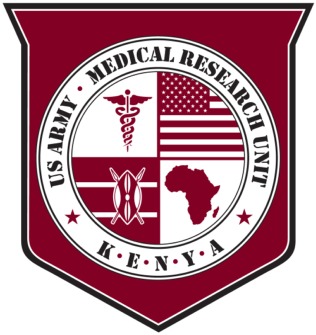


BASIC SCIENCES
Mission & Background |Training | Collaborating partners | Research Areas | PublicationsResearch Areas
Our research areas fall into four categories:-
Immunological
correlates of immunity:
- Determination of antibody levels to merozoite surface protein -1 (MSP-1) in children immunized with MSP-1 malaria vaccine candidate antigen.
- Flow-cytometry measurements of circumsporozoite protein (CSP) specific cell mediated immunity
- Evaluation of secreted malaria antigens (HRP2 and pLDH) for quantification of malaria parasite biomass.
- Evaluation of a novel miniaturized multiple pathogen diagnostics platform
- Molecular identification of natural traits that confer protection to malaria:
- Detection of hemoglobin variants by HPLC
- Detection of alpha thalassaemia by multiplex PCR
- Detection of G6PD deficiency by PCR and restriction length polymorphism
-
Molecular genotyping of malaria parasite:
- Determination of antigenic diversity within the immunological determinant site of CS protein in populations collected in cohorts receiving CSP malaria candidate vaccine
- Determination of MSP1 and MSP2 allelic variants in populations collected in cohorts receiving CSP and MSP-1 malaria candidate vaccine
- Determination of MSP-119 allelic variants in Plasmodium falciparum collected in cohorts receiving MSP-1 malaria candidate vaccine
- Basic
science research:
- Studies on how malaria affects expression levels of complement regulatory proteins on red blood cells
- Studies to determine whether bacteremia that is invariably seen in children with malaria is caused by hypocomplementemia due to sustained complement activation
- Evaluating whether P. falciparum uses quorum sensing to auto-regulate parasite density
- Identification and functional characterization of genetic polymorphisms, including the Swain-Langley and McCoy blood groups, of the human complement receptor 1 (CR1) gene that may influence the susceptibility to severe malaria in Kenya
 Flow Cytometry Lab
Flow Cytometry Lab

Fluorescence microscopy images illustrating RESA and propidium iodide staining of patient RBC. The RESA+, PI- RBC is a “foot print of previous infection”
Research Departments
Emerging Infectious
Disease (GEIS)
Entomology & Vector Borne Diseases
Malaria Clinical Studies
Basic Sciences
Malaria Drug Studies
Malaria Vaccine Trials
HIV / AIDS
Research
Care and Treatment
Entomology & Vector Borne Diseases
Malaria Clinical Studies
Basic Sciences
Malaria Drug Studies
Malaria Vaccine Trials
HIV / AIDS
Research
Care and Treatment
Research Sites
Support Departments
Kondele Core Lab
Administration
Information Technology
Library
Center of Excellence (CoE)
Office of Regulatory Affairs
Employment
Links
Capacity Building
Administration
Information Technology
Library
Center of Excellence (CoE)
Office of Regulatory Affairs
Employment
Links
Capacity Building
Useful Information
Maps
Visitor information
Medical Care / TRICARE
Areas of special interest
Contact Information
News & Events
USAMRU-K Mail
Visitor information
Medical Care / TRICARE
Areas of special interest
Contact Information
News & Events
USAMRU-K Mail